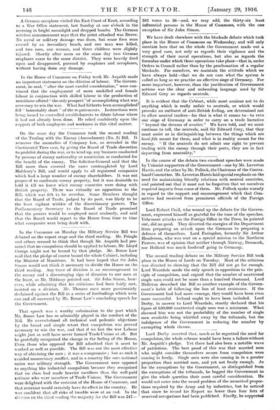On the same day the Commons took the second reading
of the Trading with the Enemy (Amendment) (No. 2) Bill. It removes the anomalies of Company law, as revealed in the Continental Tires case, by giving the Board of Trade discretion to prohibit during the war, or to wind up, any business conducted by persons of enemy nationality or association or conducted for the benefit of the enemy. The Solicitor-General said that the Bill more than covered the cases contemplated by Lord Halsbury's Bill, and would apply to all registered companies which had a large number of enemy shareholders. It was not proposed to confiscate enemy property, but it was desirable to hold it till we knew what enemy countries were doing with British property, There was virtually no opposition to the Bill, which was felt to be overdue. Some Members thought that the Board of Trade, judged by its past, was likely to be the least vigilant wielder of the discretionary powers. The Parliamentary Secretary to the Board of Trade promised that the powers would be employed most zealously, and said that the Board would report to the House from time to time what companies were being dealt with.


















































 Previous page
Previous page